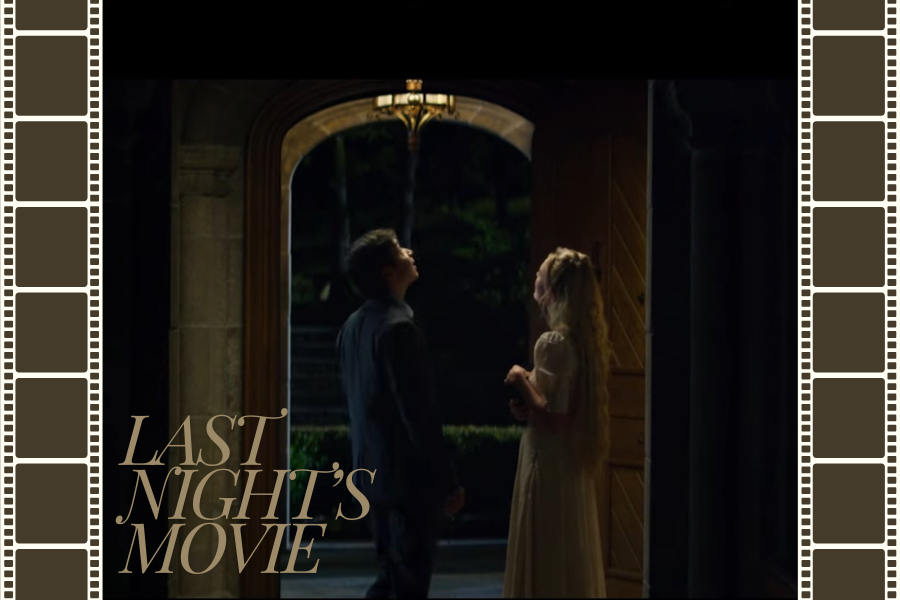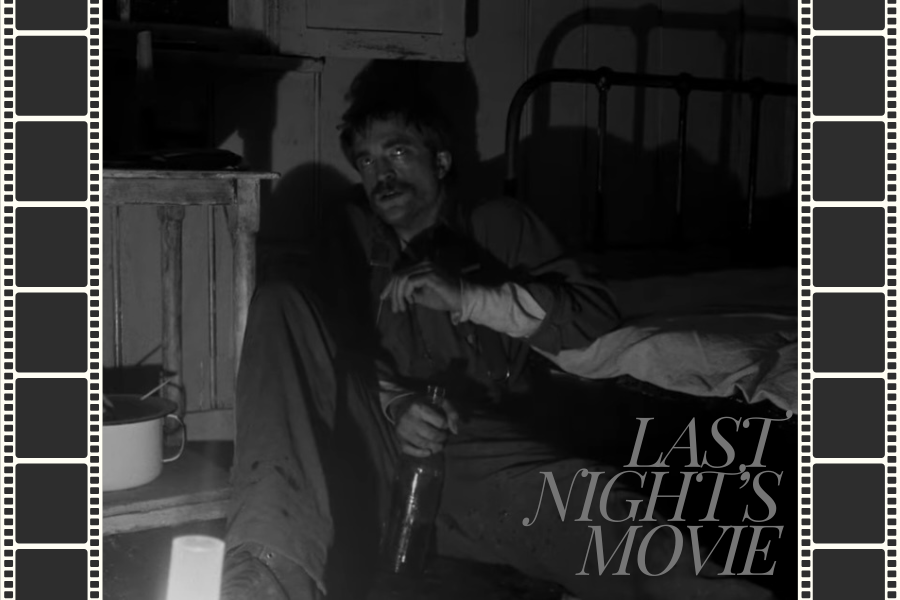Last night’s movie [7]

It’s everything young divorcee Hap dreams of: spending the night with a hot girl he met at the bar. Anything could come of one night, right? Love, wealth, joy and power; anything is on the table. Hapgood (Hap) thinks he’s just won it all when he’s invited back to a mysterious girl’s mansion after meeting at the bar. He seems to forget that dreams are the only things that can turn into nightmares.
“House of Darkness” (2022) is a story of ulterior motives and dangerous games. It follows Hap (which means “God” as a surname if that gives any insight as to what his character will be like) and the “mystery girl,” Mina, after they leave the bar together, only for him to find that her charming facade may hide something deadly. Generously, we’ve decided to give it a four out of 10 stars. That might sound harsh, but rest assured, it’s deserved.
“House of Darkness” is labeled as a horror/comedy, though we didn’t find it to be either. Horror-wise, there was plenty of gore at the end, and enough ploys of suspense to fill an ocean of thriller films. These non-subtle stabs at suspense fell short for two reasons. One, they occurred ad nauseum and did nothing for the plot and, two, they were cliche and superficial (hint for any movie directors out there: putting screeching violins in the background doesn’t actually make a scene suspenseful).
Speaking of the plot, it was largely non-existent. This isn’t surprising as half of the movie consisted of awkward “romantic” dialogue between Hap and Mina. The dialogue, which was clearly intended to drive said plotline, was fumbling and repetitive, offering no new or interesting insights on the topics the film was fighting to address. These topics, while just as obvious as every “twist” in the story, are amazingly dull and shallow when portrayed in the movie. The film made an attempt to comment on misogyny, gender power dynamics and the way that our desires can cloud our judgement, though that is all it was: an attempt.
The interactions between Mina and Hap, though intended to be romantic, ultimately fall short. Hap is a typical finance bro, and he is navigating the recent end of his marriage. Though we didn’t get to learn much about Hap’s failed marriage, his character and the way he interacts with every woman in the movie doesn’t make it hard to guess why his past relationship was unsuccessful. While this did scratch the surface on making a statement about misogyny, it also made the movie much harder to get through.
All that’s not to say that Mina is perfect either, however she is easier to like as a character. Accompanied by the nails-on-chalkboard feel of every statement that Hap makes, Mina’s monotone dialogue, which maintains the same cadence throughout the whole movie, makes it easy to want to tune both of them out. While, understandably, this makes Mina seem more like she’s patronizing Hap (and, honestly, good on her) it doesn’t make either of them easy to listen to.
As the movie progresses, we learn that Mina has two sisters who she lives with. While the introduction of the first sister helped to drive the plot, especially in terms of unveiling Hap’s true motives with taking Mina home, the introduction of sister number two made it seem like the writers were scraping the bottom of the barrel for ideas of how to drive the story forward.
The acting was also shaky, at best. Hap, played by Justin Long (“New Girl” and “Alvin and the Chipmunks”), delivered an especially below-par performance. His body language during the scenes that were meant to be “flirty” was hesitant and tense, and when he’s supposed to be scared, he just comes off as stupid instead. His character is entirely unlikable, but the film makes it unclear on whether or not the audience is supposed to pity him. Or, what they’re supposed to get out of the movie at all.
In the long run, Long’s acting made the whole movie feel like it was filmed in one take. He seemed unsure of his lines and awkward, but, when paired with the cocky nature of his character, he seems more like the kind of character to walk into Mina’s mansion like he owned the place and proceed to make himself at home while harping on about Joe Rogan (or something else to that effect).
The cinematography, surprisingly, wasn’t horrible (or at least, as horrible as other aspects of the film). There were a few shots in particular that served to reassure us that a real director was involved in the process of filming (Neil LaBute, most known for “The Wicker Man” of 2006). However, nice pictures don’t make up for the slow and stereotypical plotline, and the over-use of fake blood doesn’t help either.
In short, “House of Darkness” proves that many things really are too good to be true, whether it be a whirl-wind romance or a random movie found on Hulu.








